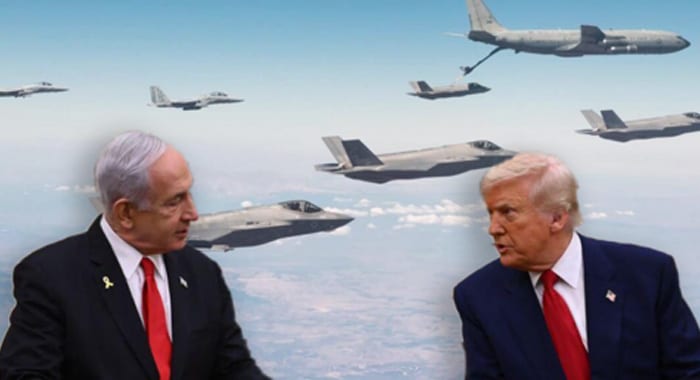Israel’s military preparations for a possible strike on Iran’s nuclear facilities have reached their final stages, Channel 12 News reported, signalling a potentially dramatic shift toward unilateral military action amid a worsening diplomatic standoff with Tehran. The report indicates that Israel has begun actively moving aerial munitions and finalising operational planning marking the most serious posture yet toward a direct confrontation. The latest escalation follows a 40-minute phone call between U.S. President Donald Trump and Israeli Prime Minister Benjamin Netanyahu, after which Netanyahu convened an emergency meeting with top security officials and senior cabinet members. According to Israeli media, the meeting focused on immediate scenarios concerning Iran’s nuclear progress and the growing uncertainty surrounding U.S.-Iran nuclear diplomacy.
Iran has remained defiant, refusing to halt its uranium enrichment program despite international pressure. The United States, meanwhile, has maintained that any future agreement must include a full cessation of Iran’s nuclear activities. As the 60-day deadline set by President Trump in March 2025 for the revival of talks has now passed without results, Washington and Jerusalem appear to be re calibrating their options.
U.S intelligence sources confirm that Israel has intensified military planning in recent months, a move that senior American officials say may be part of a high-stakes diplomatic strategy aimed at pressuring both Iran and the U.S. “There’s a credible build-up, but no final decision yet,” a senior U.S. official told CNN. “Israel may be signalling, but it’s prepared to act if needed.”
American officials have also cautioned that an Israeli strike especially without U.S. backing could ignite a wider regional war, drawing in Hezbollah, Iranian proxies in Syria and Iraq, and potentially destabilizing the broader Middle East. Yet, despite the risks, sources say Israeli defence officials believe the current moment presents a rare strategic opening.
Recent assessments suggest that Iran has suffered significant military setbacks following Israeli strikes on its missile and air defence infrastructure in October. These losses, compounded by economic pressure from sanctions and weakened influence among its regional proxies, have reportedly reinforced Israel’s belief that Iran may be vulnerable to a targeted military campaign.
Still, operational limitations remain. Without direct U.S. support, Israel lacks key capabilities particularly mid-air refuelling and bunker-busting munitions required for a sustained and successful attack on deeply buried nuclear facilities. While U.S. intelligence monitoring has intensified in anticipation of Israeli action, the Biden administration is expected to withhold support unless Iran provokes a serious escalation. Security analysts warn that even a well-executed Israeli strike might only delay Iran’s nuclear program, not dismantle it. “This is a critical moment,” said one American official. “Israel’s leadership is weighing whether to act alone, or continue banking on diplomacy despite its diminishing returns.”
As regional tension reaches a boiling point, Israel’s next move will likely depend on whether Washington offers quiet backing for military action or urges restraint in pursuit of renewed diplomacy. With the clock now past the White House’s self-imposed deadline, the world watches for what could be a pivotal decision in the Middle East’s volatile security landscape.





